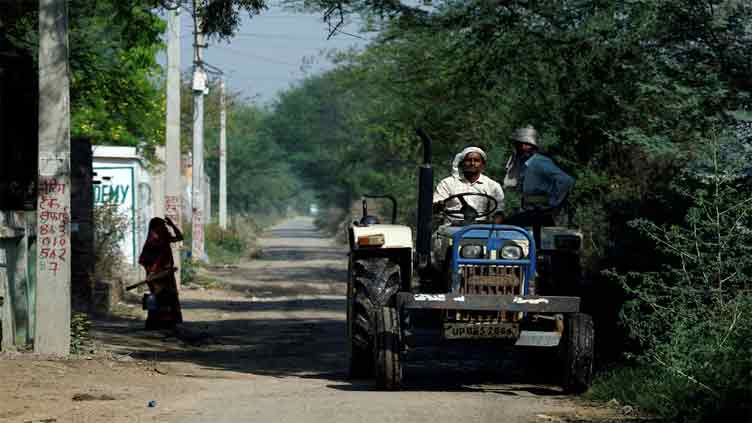India rural housing subsidies to reach $6.5bn after election setback

Business
Planned hike is part of a broader government initiative to boost infrastructure spending
Modi government is worried over widespread rural economic distress, driven by higher food inflation and sluggish growth in farmers' incomes
Ruling BJP is relying on allies after the opposition did much better than expected in a bitterly fought national election
State assistance increased to 200,000 rupees ($2,395) per housing unit from 120,000 rupees amid rising costs of raw materials
NEW DELHI (Reuters) – India plans to increase state subsidies on rural housing in the upcoming federal budget by as much as 50 per cent from the previous year to more than $6.5 billion, after setbacks for the prime minister's party in elections, two government sources said.
The planned hike in housing subsidies is part of a broader government initiative to boost rural infrastructure spending, including village roads and a jobs programme, to help millions of young people stuck in the agriculture sector amid limited manufacturing jobs.
If approved, it would mark the largest annual increase in federal spending on the rural housing programme since its inception in 2016.
"The government is worried over widespread rural economic distress, driven by higher food inflation and sluggish growth in farmers' incomes," said one of the government sources with knowledge of budget discussions.
Shares of Housing and Urban Development Corp rose as much as 9 per cent after the Reuters report, while Aadhar Housing Finance and GIC Housing Finance rose around 4.5pc.
Prime Minister Narendra Modi's Bharatiya Janata Party (BJP) is having to rely on allies to run the government for the first time in a decade, after the opposition did much better than expected in a bitterly fought national election that ended last month.
Under the PM Awas Yojna (Rural) housing scheme, the government aims to facilitate construction of an additional 20 million houses over the next few years, after providing aid for more than 26 million homes for poor Indian households over the past eight years.
Finance Minister Nirmala Sitharaman is expected to announce details of plan during the budget presentation later this month.
"We expect a substantial increase in allocations for several rural schemes this year, including housing, roads and jobs programme," said the second government source, noting federal subsidies for rural housing could exceed 550bn rupees ($6.58bn), up from 320bn rupees last fiscal year.
He said state spending on the rural jobs programme was expected to increase substantially from an earlier estimate of 860bn rupees, but the government may seek parliament approval for this additional spending later, not as part of the budget.
He said a separate proposal for increasing spending on village roads was also under consideration, from earlier estimates of 120bn rupees in the current fiscal year.
Both sources spoke on the condition of anonymity as they were not authorised to discuss budget proposals with the media.
During pre-budget consultations, economists and industry leaders urged the government to ramp up rural spending to stimulate consumer demand, noting that private consumption was growing at half the pace of nearly 8pc annual economic growth.
The sources said to build 20 million houses for the poor in the rural areas, the federal and state governments are expected to allocate up to 4 trillion ($47.89bn) over the next few years, with the federal government contributing around 2.63tr rupees.
A finance ministry spokeswoman didn't comment when asked about spending plans.
Last month, shortly after assuming office, Modi's cabinet announced plans to assist in the construction of 30 million houses in rural and urban areas, without disclosing financial details.
The Ministry of Rural Development has proposed increasing state subsidies to about 200,000 rupees ($2,395) per housing unit, up from 120,000 rupees previously, citing rising costs of raw materials, the second official said.


